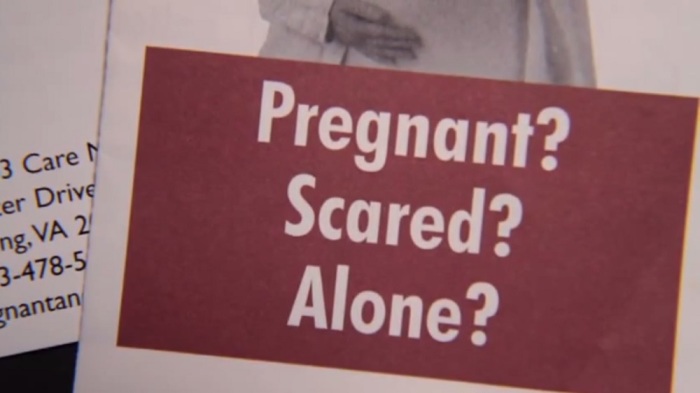Pro-Choice Group Claims Success in Persuading Google to Remove 'Deceptive' Crisis Pregnancy Ads; Pro-Life Groups Not Convinced Move Will Impact Work
A major pro-choice organization is applauding a move by Google to remove "deceptive" ads by pro-life crisis pregnancy hoping to reroute those searching for information about abortion, while pro-life advocates argue that the technology company's policy has thus far not impacted their advertising efforts.

NARAL Pro-Choice America announced Tuesday that it has successfully lobbied Google to remove advertisements that appeared to publicize abortion but in reality did not offer the service.
Ilyse Hogue, president of NARAL, praised the tech company for agreeing to remove advertisements following a campaign the organization started earlier this year.
"Google's leadership in removing the majority of these ads is a victory for truth in advertising and for the women who have been targeted by a deliberate misinformation campaign by crisis pregnancy centers," Hogue said in a statement.
She continued, "... We will continue to work with Google to ensure that their commitment results in women being directed to the resources and services they are seeking when they search online, ending this manipulation of women making vital health decisions."
NARAL maintained that not only did crisis pregnancy centers mislead those seeking to have an abortion — it also claims that its own research has found, "CPCs lie to women about abortion causing an increased risk of breast cancer, future fertility problems, and psychological trauma."
"They frequently misrepresent the services that they offer in order to trick women into coming in to the center," the press release argued, adding that crisis pregnancy centers have been wildly successful in using Internet ads.
According to NARAL, when using Google to search for abortion clinics, "ads funded by pro-life crisis pregnancy centers appear 79 percent of the time."
Brian Fisher, president and co-founder of Online for Life, an organization that focuses on online and offline advertising for crisis pregnancy centers, said that he had yet to see the effects of NARAL'S campaign and questions whether Google would actually be changing its advertising policies.
"I'm not aware that [Google has] made any decision or changes," Fisher told The Christian Post. "As best as we can tell, Google has said they're abiding by their own policies which we have been abiding by for years. We don't see anything in the material that we've reviewed to suggest that Google's made any decisions that are concerning to us."
According to Google's advertising policy, "Advertising can be informative, entertaining, metaphorical, or even tell a story. However, any factual claims and offers should always be credible and accurate. Misleading, inaccurate, and deceitful ads hurt everyone — users, publishers, developers, and advertisers."
Fisher defended crisis pregnancy centers' ads, arguing that they are "not misleading at all," and that Online for Life is playing by the rules of a "free market society."
"In most cities if you were to type in 'Ford,' you'll also see ads for Dodge or Chevy. If you were to type in 'Colonial Life Insurance,' Geico will show up. It's at the heart of advertising and marketing in a free market society to be able to advertise something that is a competitor, if you will, to another product or service," Fisher said. "It's customarily done. Google knows it and allows it, because they are a free market vendor as well and that's just part of the freedom of the country that we live in."
Drew Belsky, a spokesperson for the pro-life group Live Action, also weighed in.
"It's also interesting about the word 'advertisements,'" Belsky told CP. "You have a very stark contrast between how pregnancy resource centers operate and how abortion centers operate. Because, on the one hand, the abortion center is certainly selling something, an abortion — the killing of a human being. A woman walks in there and she pays for that procedure. Whereas pregnancy centers technically aren't selling something. They almost always offer their resources for free."
When asked about the allegations that crisis pregnancy centers lied or over-exaggerated health concerns resulting from an abortion to women, Belsky argued that pro-choice organizations "consistently [mislead women on] the fetal development of the child to the financial burden of raising a child to the difficulty of adoption, because again, these people want to sell something."
"It's always interesting to hear the pro-abortion organization say the science is settled on a given issue ... because you can provide as many studies as you want to, but then you just end up in a situation where you can play dueling studies," he continued.
Fisher credited Online for Life's reach with preventing 1,800 abortions and reiterated that he believes NARAL's campaign will have little impact on his organization's work.
"This may be much ado about nothing, because at the end of the day we've had a great relationship with Google. We abide by all their policies and we anticipate continuing have a great relationship with them," said Fisher. "Until we are made aware of some specific situations, I think the only public thing Google has said is that they continue to abide by their own policies and providing the rest of us do the same. I think we're in for a long and prosperous relationship."





























